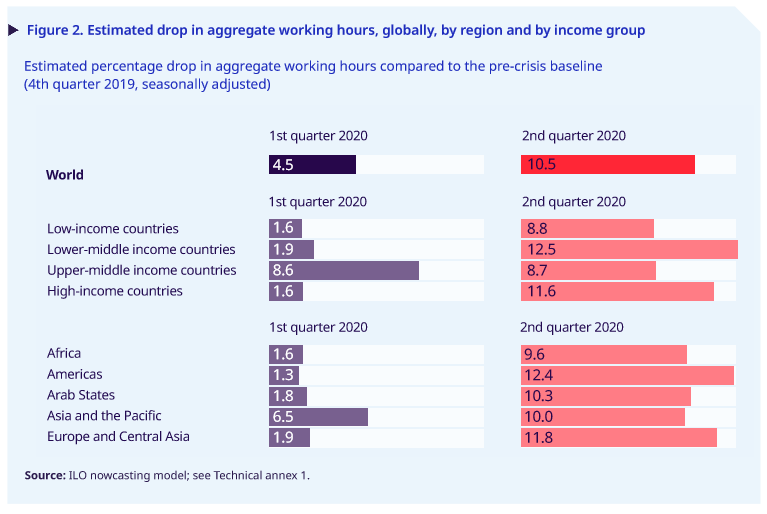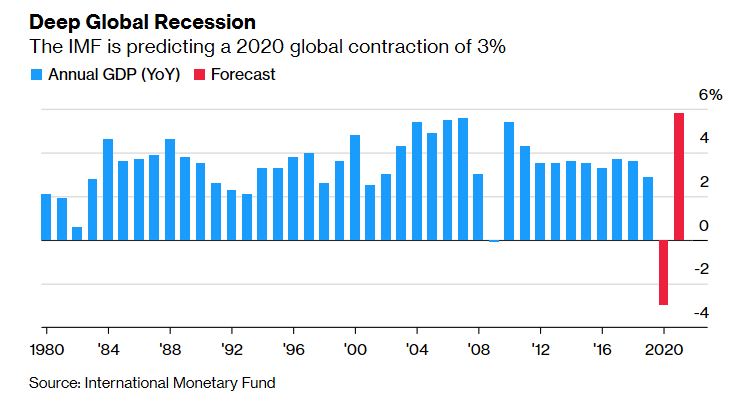#1. Working from home means working longer hours
Following the lock-down measures enacted in much of the world due to COVID-19, many people have found themselves working from home. But while this remote work experiment was initially hailed as an opportunity for more flexibility, it has not all been plain sailing without its negative consequences, writes Bloomberg. It seems that people in the US who work from home spend on average three hours per day on the job more than they would if they worked from the office (while workers in France, Spain, and the UK work on average two more hours per day). Moreover, the constant ‘always-on’ work culture means people are increasingly overworked, stressed, and eager to go back to the office. While there are indications that productivity has improved, the increased workload and the challenge of juggling personal and professional life have also led to a higher risk of burnout.

#2. EU health and safety guidance on how to go back to work
To facilitate the reopening of economies in the EU, the European Agency for Safety and Health at Work (EU-OSHA) has issued guidelines for a safe return to the workplace. Numerous countries such as Austria, the Czech Republic or Germany have already announced their plans to gradually return to the new normal. These EU guidelines cover several areas including risk assessment, resuming work after a period of closure as well as minimising exposure to COVID-19 at work. The European Commissioner for Jobs and Social Rights, Nicolas Schmit said that “this guidance provides answers to practical questions that employers have”. In a similar fashion, three leading HR services companies, including The Adecco Group have recently joined forces to help businesses and workers return to work safely.

#3. Crucial role of HR leaders in the post-COVID era
The disruptive nature of COVID-19 has forced businesses to quickly adjust. For the most part, many companies have relied heavily on their HR and IT teams to ensure the wellbeing of workers as well as to keep the business operational. But in the wake of the gradual re-opening of our economies, HR departments are beginning to face new challenges marked by the post-COVID reality, writes BW people. For instance, due to the exceptional circumstances of the ‘work from home’ mode, mental health will become more prominent, the workspace will change its function, and innovation will flourish. HR leaders will play a key role in making sure businesses are ready to take advantage of new opportunities that will arise from this new reality.

#4. ILO: As job losses escalate, nearly half of global workforce at risk of losing livelihoods
According to the International Labour Organization (ILO) the COVID-19 pandemic will have a devastating impact on the most vulnerable workers as well as on hundreds of millions of enterprises worldwide. The ILO Monitor, which was published on Wednesday, forecasts that 1.6 billion workers in the informal economy (almost half of the global workforce) stand in immediate danger of having their livelihoods destroyed. This is largely due to the lockdown measures and because workers in the informal economy work in the hardest-hit sectors. Due to the crisis, working hours have been cut on average by 10% and the income has dropped by 60% globally – with 81% drop in Africa and the Americas, 21.6% in Asia and the Pacific, and 70% in Europe and Central Asia.

#5. Business of survival means race for new skills to stay afloat
In light of the gloomy economic forecasts, workers around the globe have turned their attention to reskilling and upskilling. While prior to the COVID-19 pandemic it was estimated that 1 billion people would need to be reskilled or upskilled by 2030, this process has only been accelerated in the recent weeks. According to Bloomberg, there has been a significant jump in demand for skills training in the past weeks, and education organizations such as General Assembly have seen a major increase in sign-ups for their online classes, workshops, and events. Similarly, many businesses that have pivoted their production and services in recent weeks towards COVID-19, have had to retrain most of their staff anew. It is no surprise that for both workers and businesses, developing new skills has become a must in this new economic reality.




